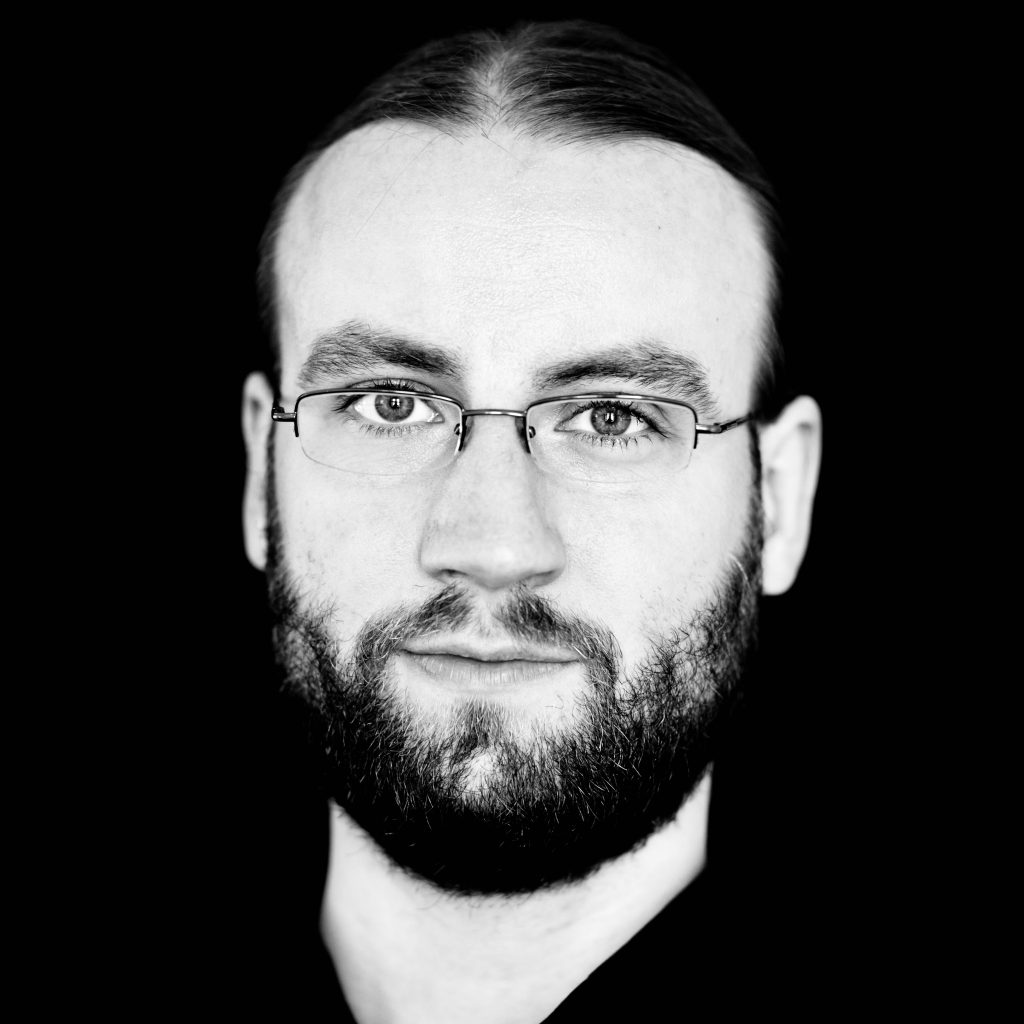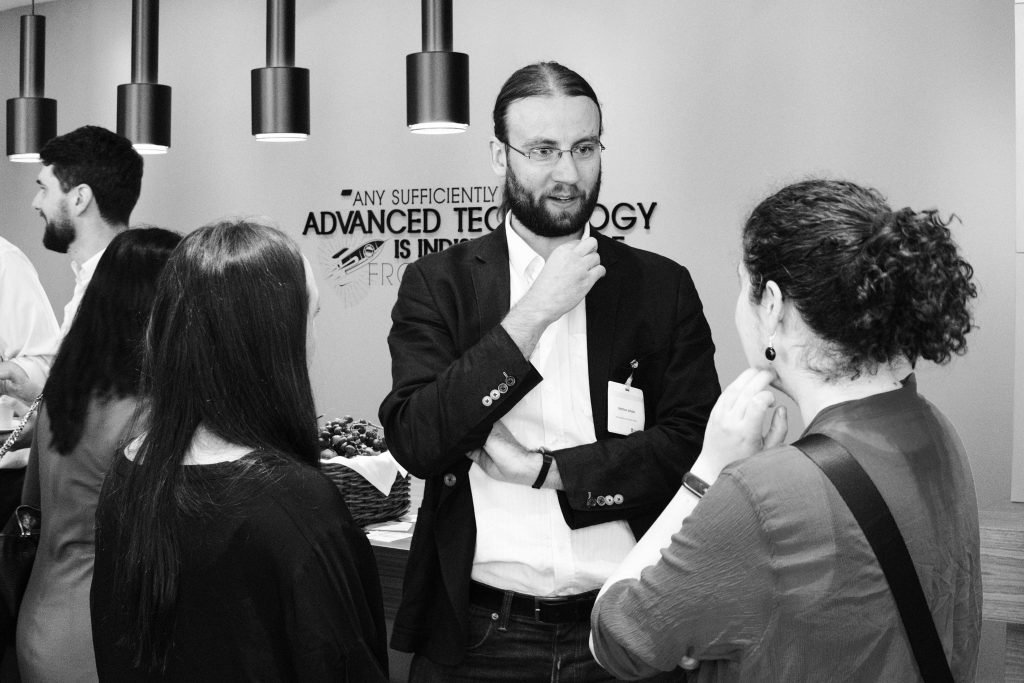
This blog & podcast explores the intersection of digital technologies, the Internet, cyberspace, and security policy, with a focus on the securitization and militarization of the digital world. It focuses on the dark „side of digitization“. The term „perception“ refers to the ability to become aware of something through the senses, while „panopticon“ is a metaphor for surveillance technology that disciplines individuals under constant observation.
perception: The ability to see, hear, or become aware of something through the senses
Panopticon: A circular prison with cells arranged arround a central well, from which prisoners could at all times be observed.
CV
- October 2023: Head of Research Focus International Cybersecurity at the Institute for Peace Research and Security Policy at the University of Hamburg (IFSH)
- March 2022 – September 2023: Co-creator of the European Repository of Cyber Incidents in cooperation with SWP Berlin, University of Heidelberg, Innsbruck University and the Cyber Policy Institute
- May 2020 – March 2023: Deputy head at the security division at SWP
- 2018 Transatlantic Digital Debates fellow over at the German Public Policy Institute
- August 2017: Ph.D. defense, Magna cum laude. Title: From cyber-utopia to cyber-war. normative change in cyberspace.
- April 2017: Researcher at German Institute for International and Security Affairs
- July – October 2015: Research visit at Citizen Lab, University of Toronto
- September 2012: Research Assistant at the Department of International Relations, Jena University
- July 2012: Master thesis award of the Institute of Political Science Jena friends association
- November 2011: Magister Degree in Political Science, Sociology, and Philosophy. Master thesis about “The language of insecurity. The construction of threats in the German political discourse about data-retention and electronic surveillance”
- July – September 2009: Intern at Frankfurt Peace Research Institute, research on recent developments in Swedish foreign policy
- August 2008 – June 2009: Erasmus exchange program, stay at Högskolan Dalarna, Sweden
- October 2005 – November 2011: Magister Program in Political Science, Philosophy and Sociology at Friedrich-Schiller University, Jena

About me 🇺🇸
Matthias Schulze is a cyber security expert with years of experience researching cybersecurity. He currently leads the research Focus International Cybersecurity at the Institute for Peace Research and Security Policy at the University of Hamburg (IFSH).
His work focuses on understanding the strategic use of cyber-capabilities in international relations, „cyber war“ / cyber-conflicts, cyber-espionage, information operations, and cyber-crime. With a regional focus on key cyber-powers such as the USA, EU, Russia, China, and North Korea, he brings his deep understanding of the cyber domain to the discussion table, enabling him to help guide important policy decisions.
Matthias also participates in numerous national and international discussions, and working groups, and track 1.5 dialogues on cyber-security. He is regularly invited to speak at relevant cyber-security stakeholder events and conferences, and he hosts his own percepticon.de Podcast, which discusses various essential cyber-security topics.
His expertise in cyber-security has been recognized through numerous research papers, commentaries, and media appearances in international media, including The Economist, Deutsche Welle, and German newspapers such as der Spiegel.
Previously he was a researcher and later deputy head of research at the security division at Stiftung Wissenschaft und Politik (SWP) or the German Institute for International and Security Affairs. Before that, he was a lecturer and research assistant in international relations at Friedrich-Schiller University in Jena, Germany, where he designed and delivered courses on cyber-security in international relations.
He holds a Ph.D. with magna cum laude from the Friedrich-Schiller University in Jena, where he conducted in-depth research on how the Internet has evolved from a cyber-utopia into a cyber-war dystopia. Additionally, he holds a Magister Degree in political science, sociology, and philosophy from the same university.
Über mich 🇩🇪
Matthias Schulze ist Cyber-Sicherheitsexperte mit jahrelanger Erfahrung in diesem Bereich. Gegenwärtig leitet er den Forschungsschwerpunkt Internationale Cybersicherheit am Institut für Friedensforschung und Sicherheitspolitik in Hamburg (IFSH).
Seine Arbeit konzentriert sich darauf, die strategische Nutzung von Cyber-Fähigkeiten in den internationalen Beziehungen, „Cyberkrieg“ / Cyber-Konflikte, Cyber-Spionage, Informationsoperationen und Cyber-Kriminalität zu verstehen. Mit einem regionalen Fokus auf wichtige Cyber-Mächte wie USA, EU, Russland, China und Nordkorea bringt er sein tiefes Verständnis für den Cyber-Bereich an den Diskussionstisch, was ihm ermöglicht, wichtige politische Entscheidungen mitzugestalten.
Matthias hat an zahlreichen nationalen und internationalen Diskussionen, Arbeitsgruppen und Track-1,5-Dialogen zur Cyber-Sicherheit teilgenommen. Er wird regelmäßig zu relevanten Veranstaltungen und Konferenzen für Cyber-Sicherheitsinteressenten eingeladen und er moderiert den percepticon.de Podcast, der eine Vielzahl essenzieller Cyber-Sicherheits-Themen behandelt.
Seine Expertise in Cyber-Sicherheit wurde durch zahlreiche Forschungspapiere, Kommentare und Medienauftritte in internationalen Medien wie The Economist, Deutsche Welle und deutschen Zeitungen wie der Spiegel präsentiert. In der Vergangenheit arbeitete er als Wissenschaftler und stellvertretender Forschungsgruppenleiter an der Stiftung Wissenschaft und Politik (SWP Berlin). Davor war er als Dozent und wissenschaftlicher Mitarbeiter im Bereich Internationale Beziehungen an der Friedrich-Schiller-Universität in Jena, Deutschland angestellt. Dort unterrichtete er Kurse zu Cyber-Sicherheit in den internationalen Beziehungen.
Er hat einen magna cum laude PhD von der Friedrich-Schiller-Universität in Jena, wo er eine eingehende Forschung darüber durchgeführt hat, wie sich das Internet von einer Cyber-Utopie in eine Cyber-Kriegs-Dystopie entwickelt hat. Zusätzlich hat er einen Magisterabschluss in Politikwissenschaft, Soziologie und Philosophie von derselben Universität.
Photos for use


